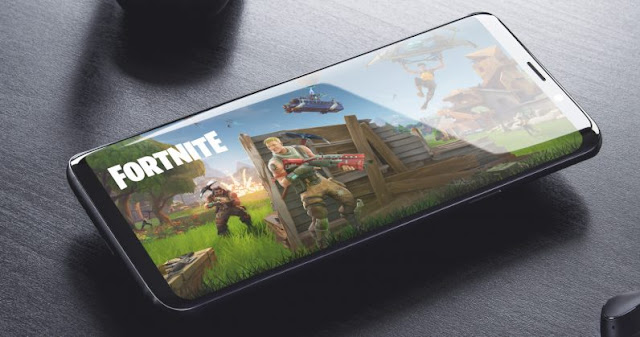The Samsung Galaxy Note 9 is launching next month at Samsung Unpacked 2018. While the Android enthusiast community has been interested in the latest Samsung flagship due to its larger 4,000mAh battery and smart, Bluetooth S Pen features, the device itself seems mostly an iterative improvementover the Samsung Galaxy Note 8. Samsung needs something truly special to entice the average buyer into considering the Galaxy Note 9. According to a trusted source, it seems that Samsung is partnering with Epic Games to launch the much-awaited
Fortnite Mobile for Android with the Samsung Galaxy Note 9.
This information comes from a trusted source who has been a reliable source of information in the past. According to the information he has provided us, the Samsung Galaxy Note 9 launch is going to be based around Fortnite. The launch video for the Samsung Galaxy Note 9 is also going to be based around Fortnite Mobile. The Samsung Galaxy Note 9 is going to be the first phone to launch and have Fortnite Mobile on it. According to our source, anyone that buys the Galaxy Note 9 is also going to get some free V-Bucks, free skins, and more. V-Bucks are used to buy a battle pass and skins, dances, or gliders in the game. This will all be bundled with the phone when it launches.
Samsung’s Push for Gaming on the Galaxy Note 9
Samsung is also being said to be
advertising this phone as a gaming phone. They are adding a
vapor chamber heat pipe for cooling in the phone so it won’t overheat. It is also launching with 128GB of storage and 6GB of RAM as the base model. The phone is going to have either an Exynos 9810 or Qualcomm
Snapdragon 845 depending on the region. Both of these system-on-chips are top of the line and should provide a smooth experience in any game and will probably be optimized for the Unreal Engine and Fortnite Mobile. You should be able to play for hours with the 4,000 mAh battery which our source was also able to confirm.
The new smart S Pen is also going to have integration into Fortnite. Our source was not able to play the game but was told that there will be S Pen integration with the new Bluetooth Smart S Pen. It will likely be used for shooting or aiming or something along those lines.
Fortnite on Android – Possible Reason Behind The Delay
The delay of Fortnite Mobile’s launch on Android could stem from this partnership between Samsung and Epic Games. Epic could be looking to work with the largest OEM in the world to launch their game so that they can advertise the game along with getting millions of possible new users. This could mean Epic Games delayed the game or spent more time optimizing it for Samsung phones so that they could get this partnership. This could also be to launch the game with a big reveal like one that you would have on the launch of a phone like the Galaxy Note 9. If this partnership wasn’t happening, Epic Games could have released the game for Android weeks if not months ago.

Our source tells us that Samsung and Epic Games are also going to try to work with the Twitch Streamer Tyler ‘Ninja’ Blevins to help launch the phone. There are talks of getting him to Samsung Unpacked 2018 to help with the announcement. We have reached out to both Epic Games and Ninja’s manager but have yet to hear back. Such a partnership would be huge for both Samsung and Ninja. Ninja is the largest and most popular Twitch streamer on the live-streaming platform. He was the first Twitch streamer to get over 200,000 paid subscribers, he has almost 10 million followers on Twitch, and 15 million YouTube subscribers. He is very well-known in the gaming community and having him endorse the smartphone would be a huge boon to the smartphone’s reputation.
The Samsung Galaxy Note 9 is poised to be a great smartphone, especially for gamers. If we learn more about this partnership between Samsung, Epic Games, and Ninja, we’ll update this article with more information.































